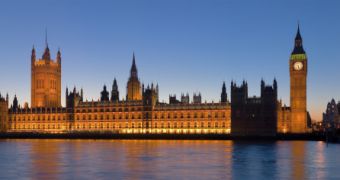The Guardian uncovered a new leaked English document that was aimed at pressing other countries into eliminating the aviation sector from the 2020 deadline for renewable energy implementation. The discovery comes as a shock, because Britain's prime-minister, Gordon Brown, is dedicated to ensuring that his country follows the European policy in environmental matters. European Union leaders promised a 20 percent cut in fossil fuel consumption, which is to be replaced with alternate energy sources.
The main reason the documents invoke for the blocking of the policy is that renewable fuels might not be strong enough to sustain commercial aviation until the deadline. But Virgin Atlantic announced that it would most likely have up to 10 percent of its current fleet running on renewables by 2020. Other air companies also pledged to reduce their dependency on fossil fuels in 12 years. The United Kingdom currently has the largest air fleet in the European Union. If it manages to "overthrow" the renewable energy bill, it will have to reduce the amount of fuel it will need to replace by 2020 with up to 12 percent.
That may not seem much in percentages, but the costs actually mount up to several billion pounds. Environmentalists say that even if interests and lobby groups manage to cancel the current proposal, the long-term effects of removing this policy from the European agenda will be much more devastating, as families and end-users will have to battle ever-increasing fuel prices and the damages to the environment will become irreversible.
The main concern among those supporting the bill is that Britain could inadvertently set a negative example to other countries in the Union, which, in turn, could ask that special omissions be made in their respective cases. If this happens, all countries would be able to shield their most polluting economic sectors from the effects of this measure, virtually rendering the whole directive useless. Environment activists say that this would be a huge step backwards, after the amount of time that all parties in the Union have spent on negotiating the current form of the bill.

 14 DAY TRIAL //
14 DAY TRIAL //